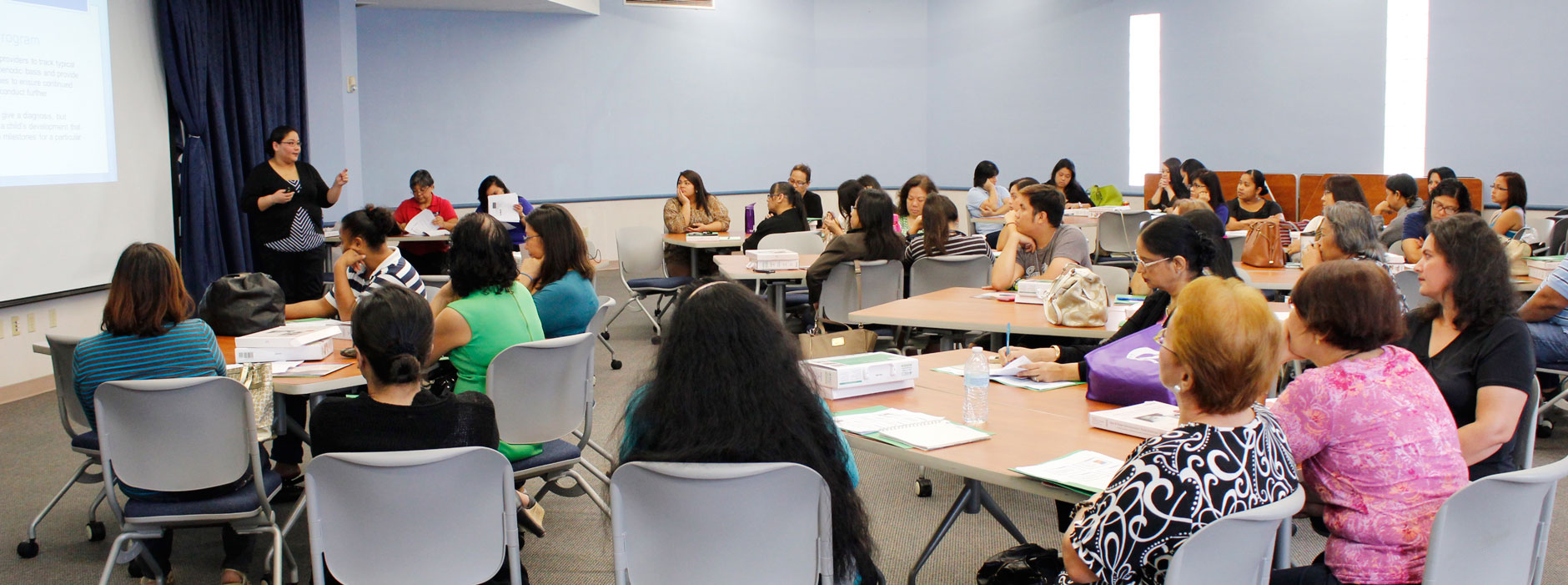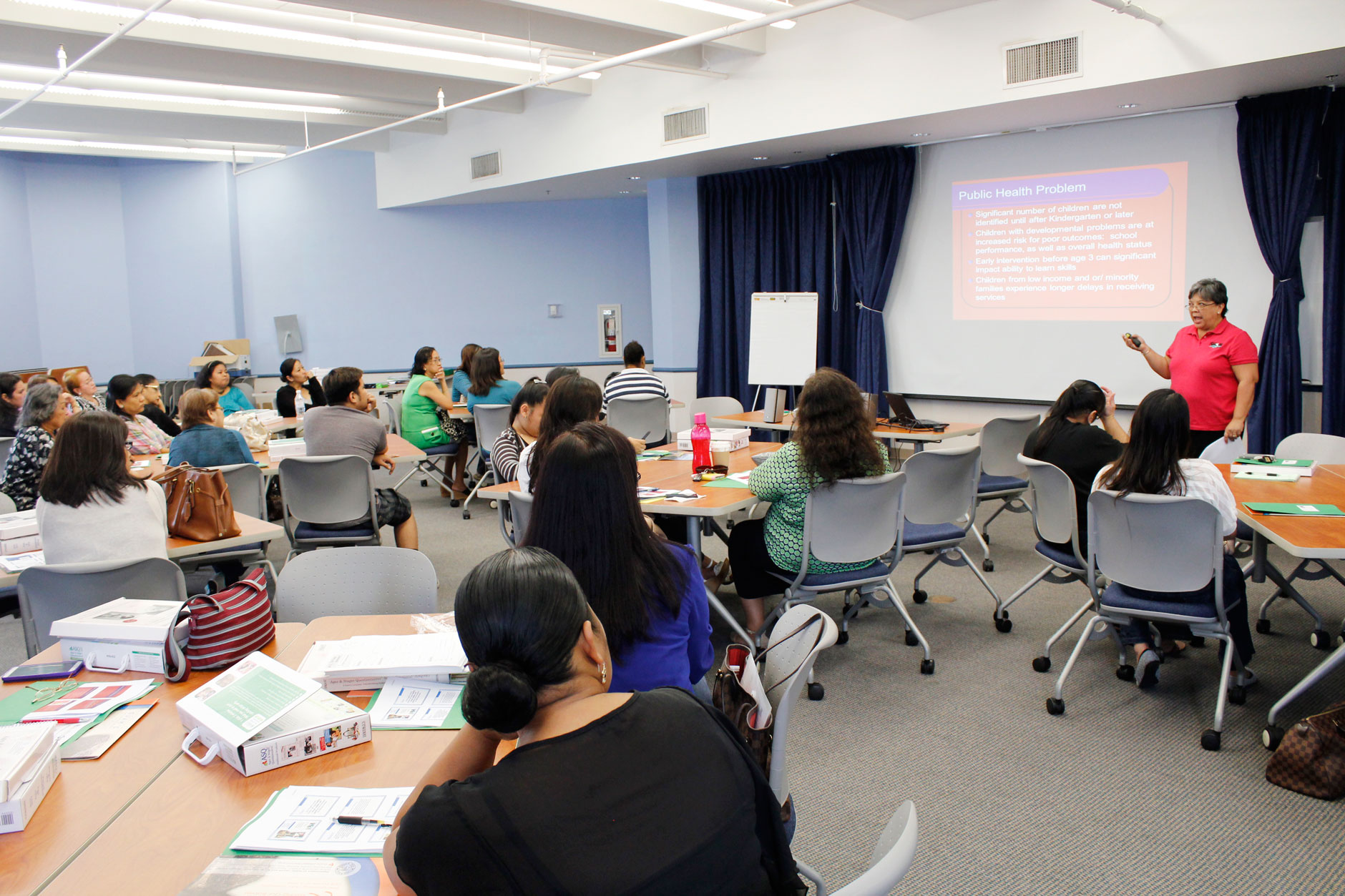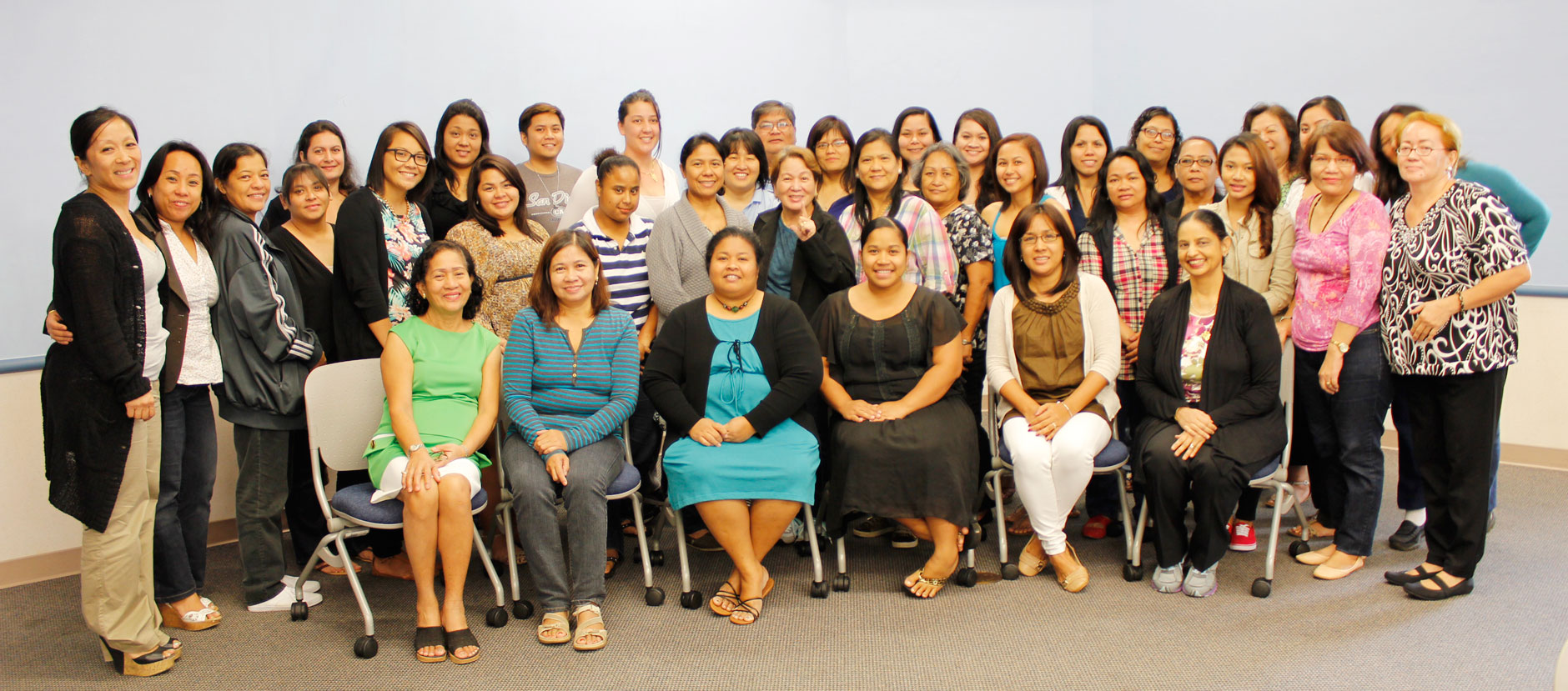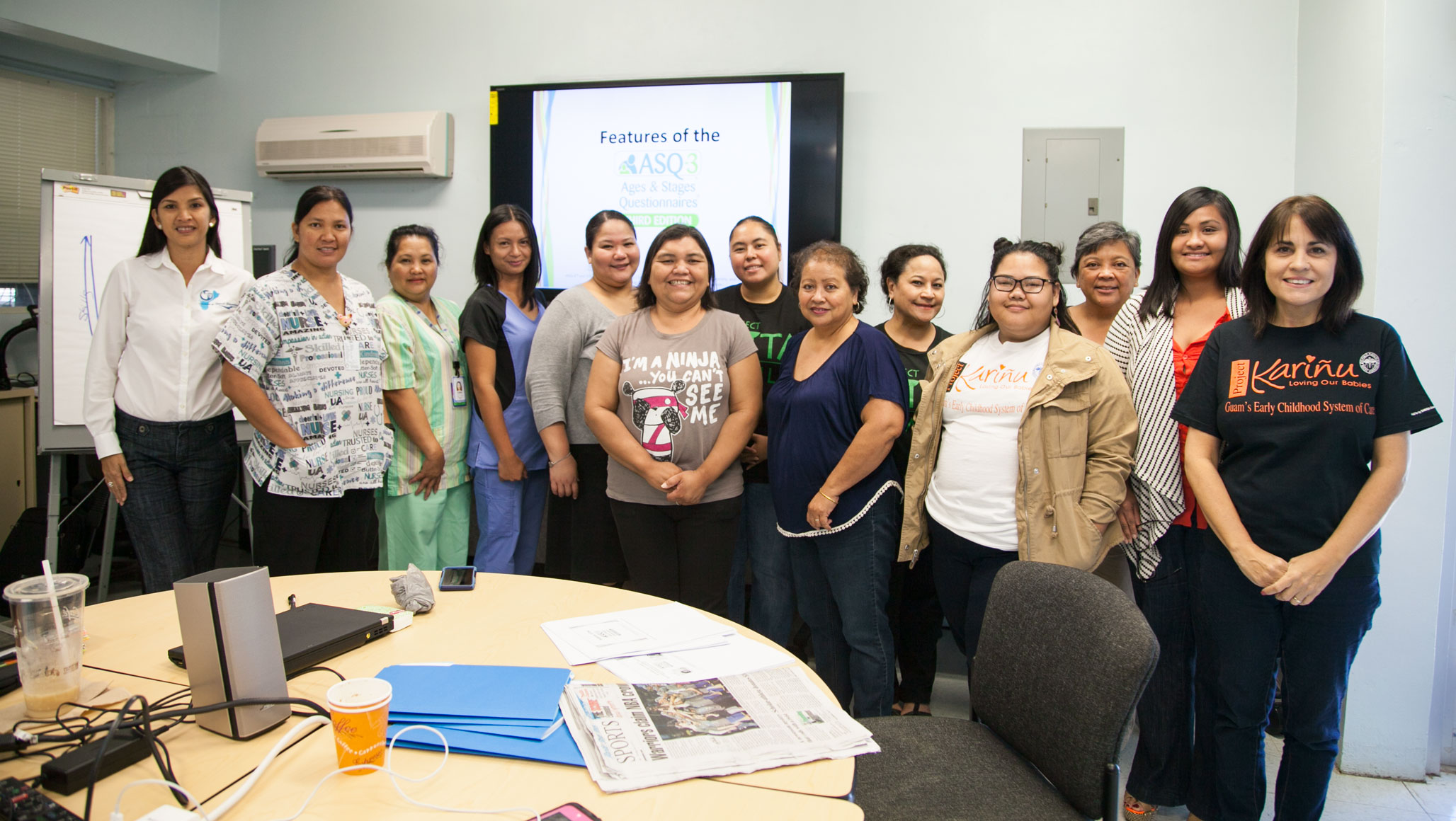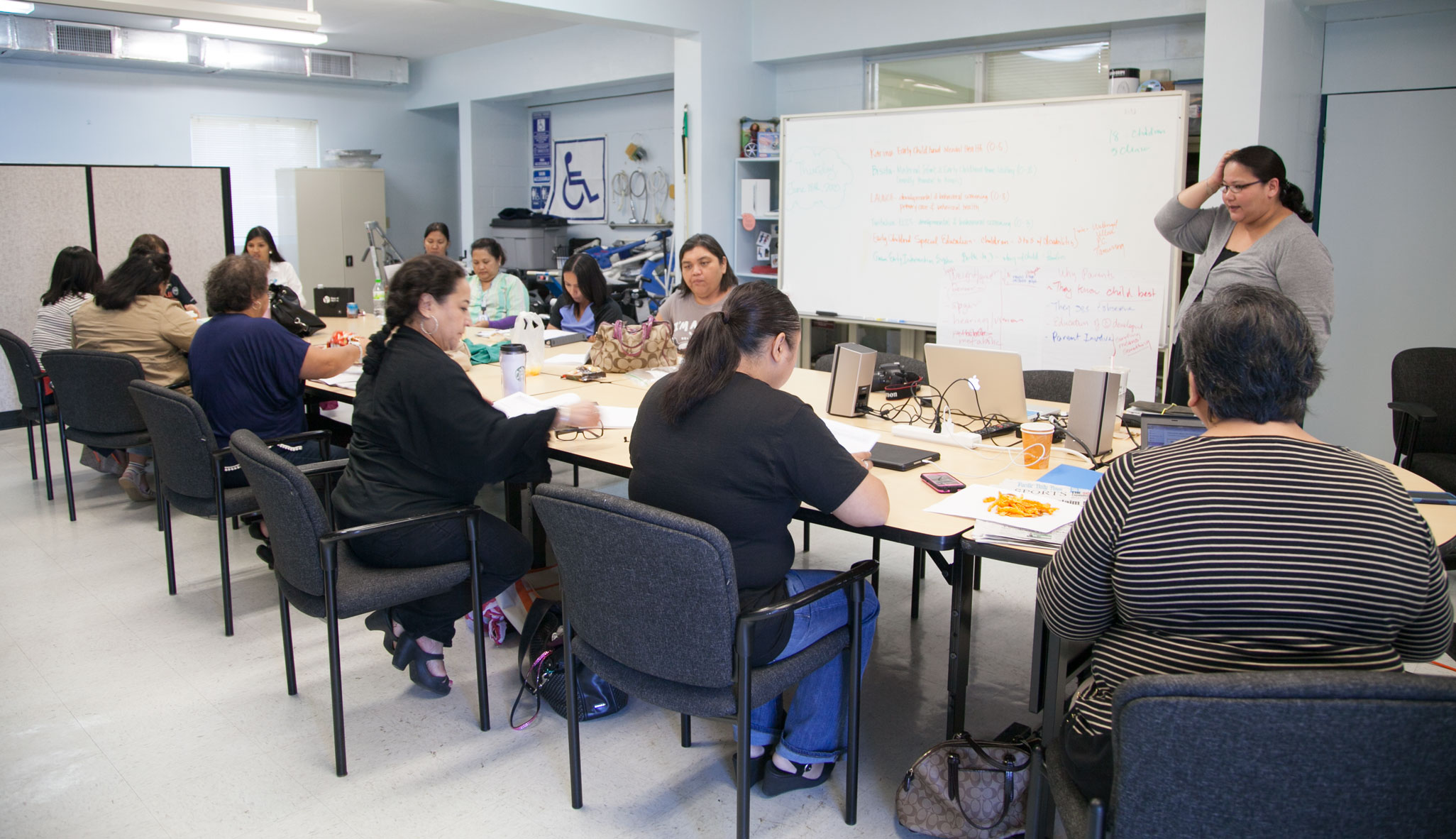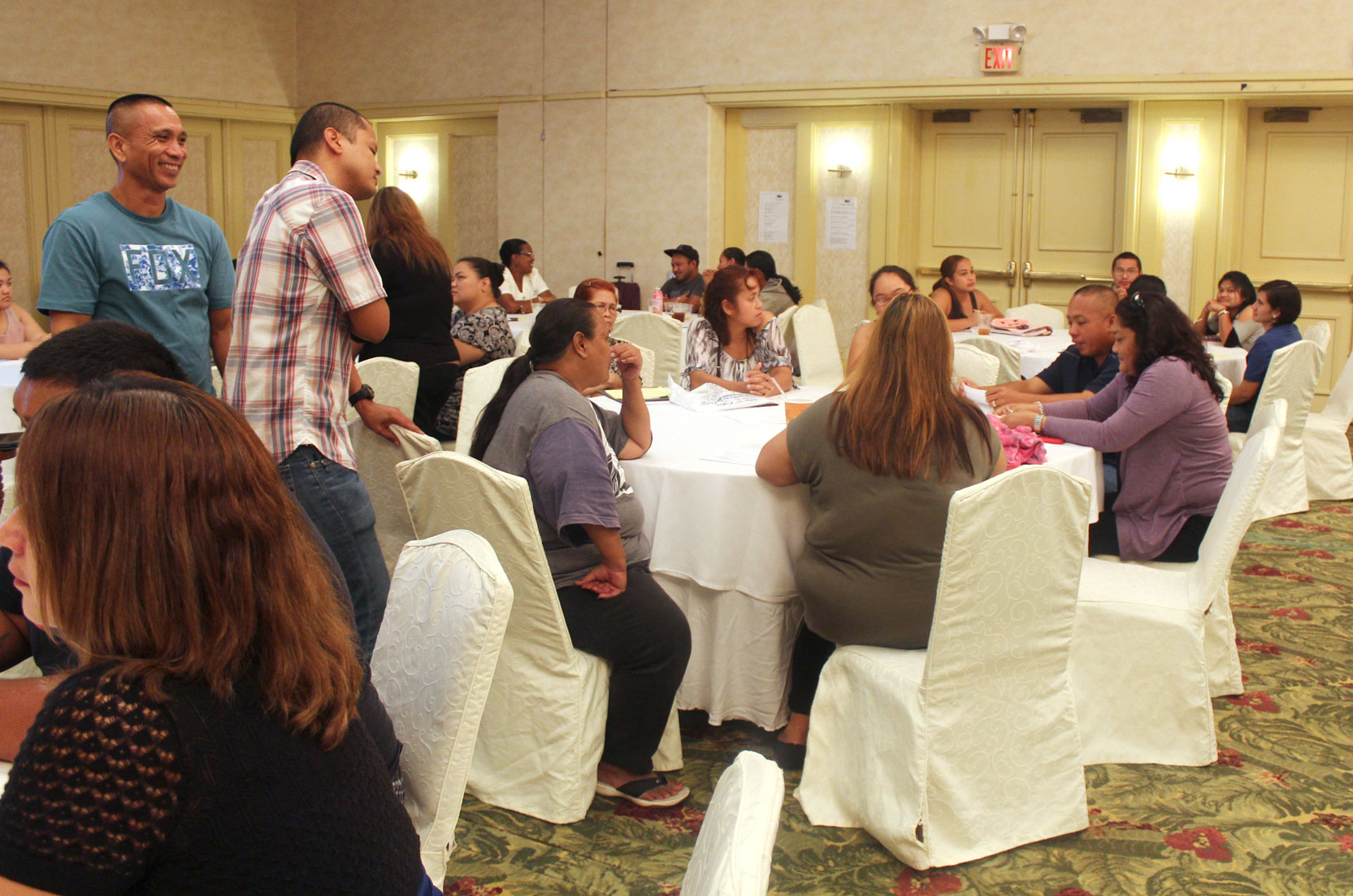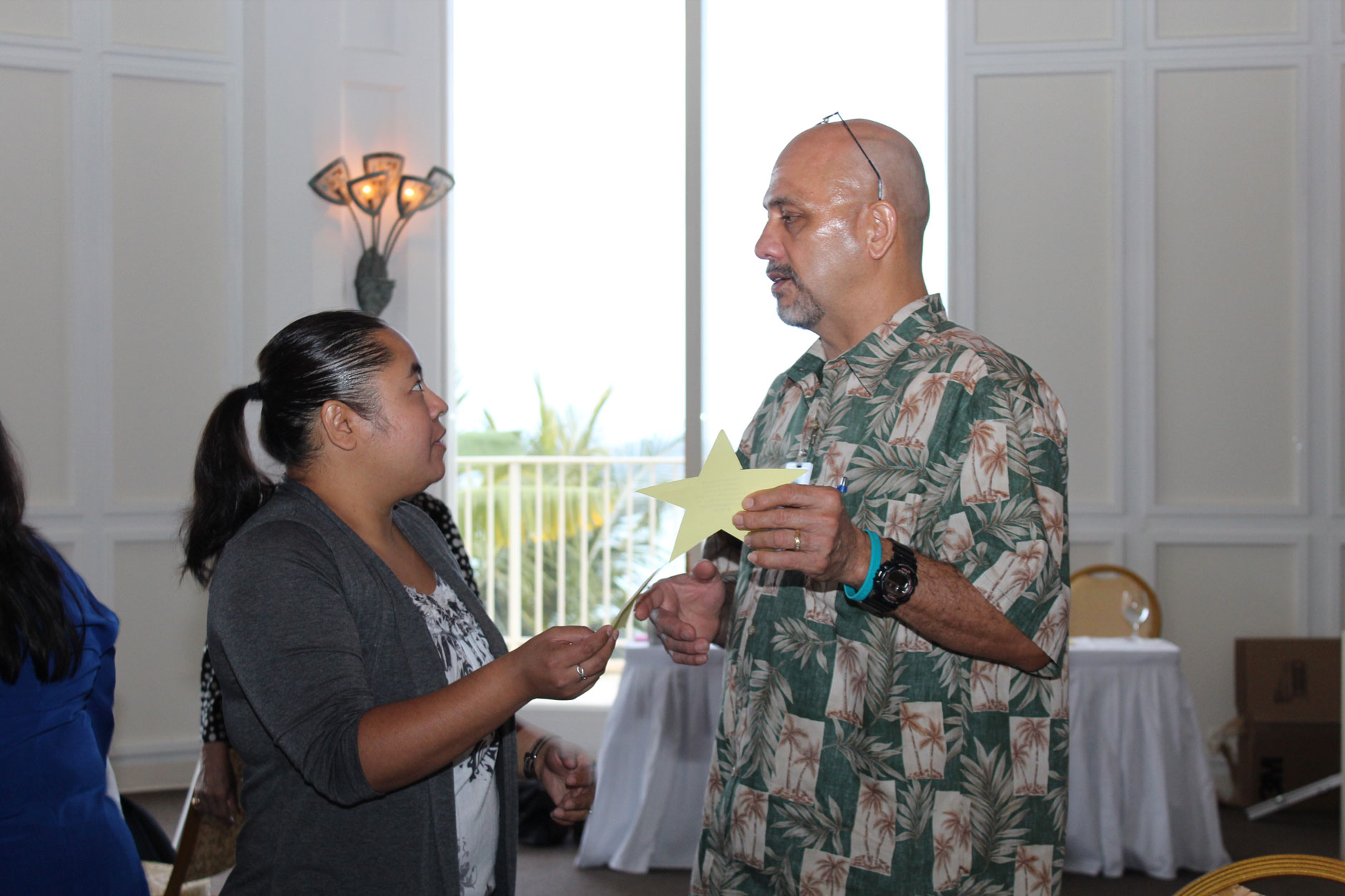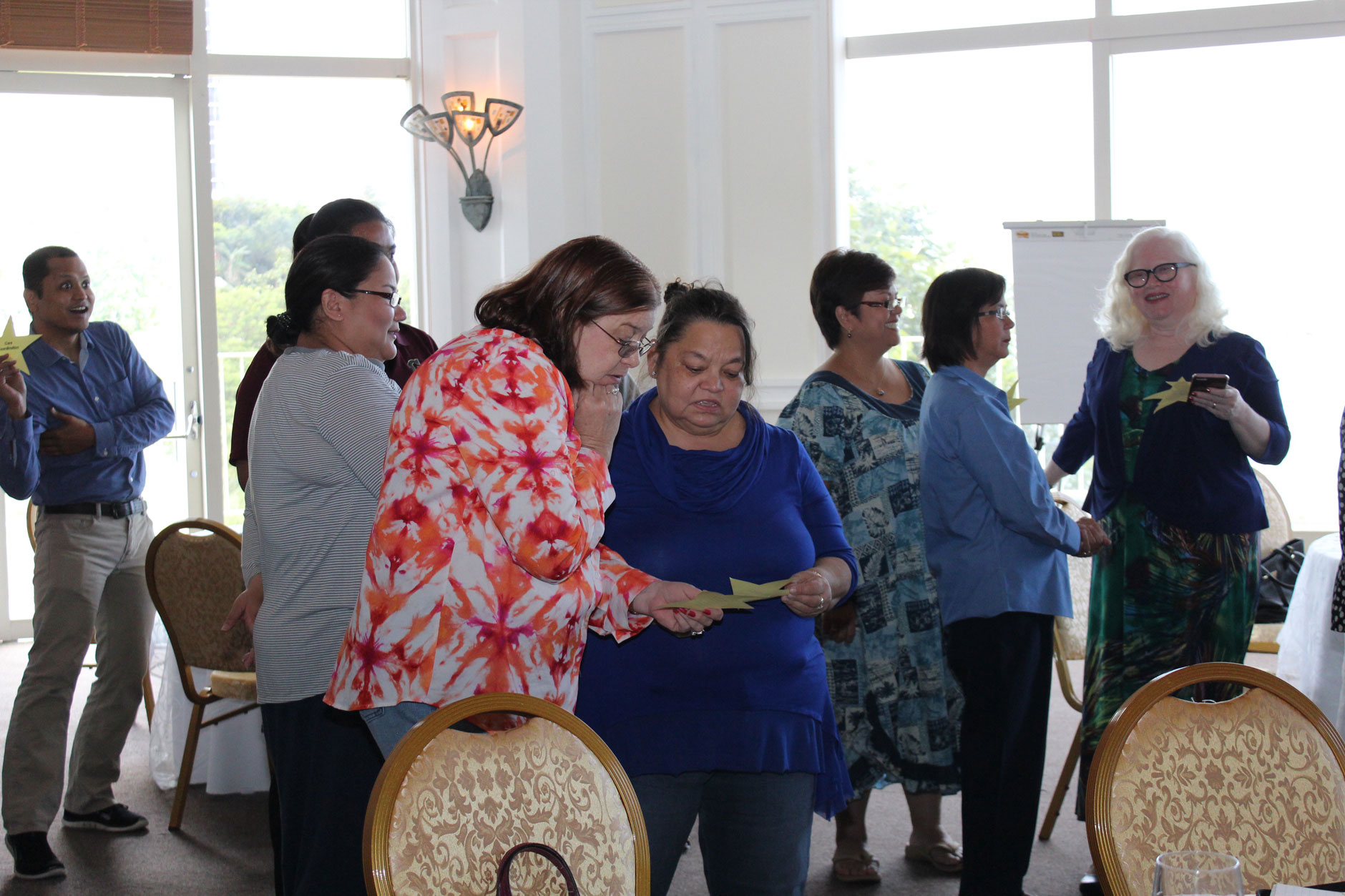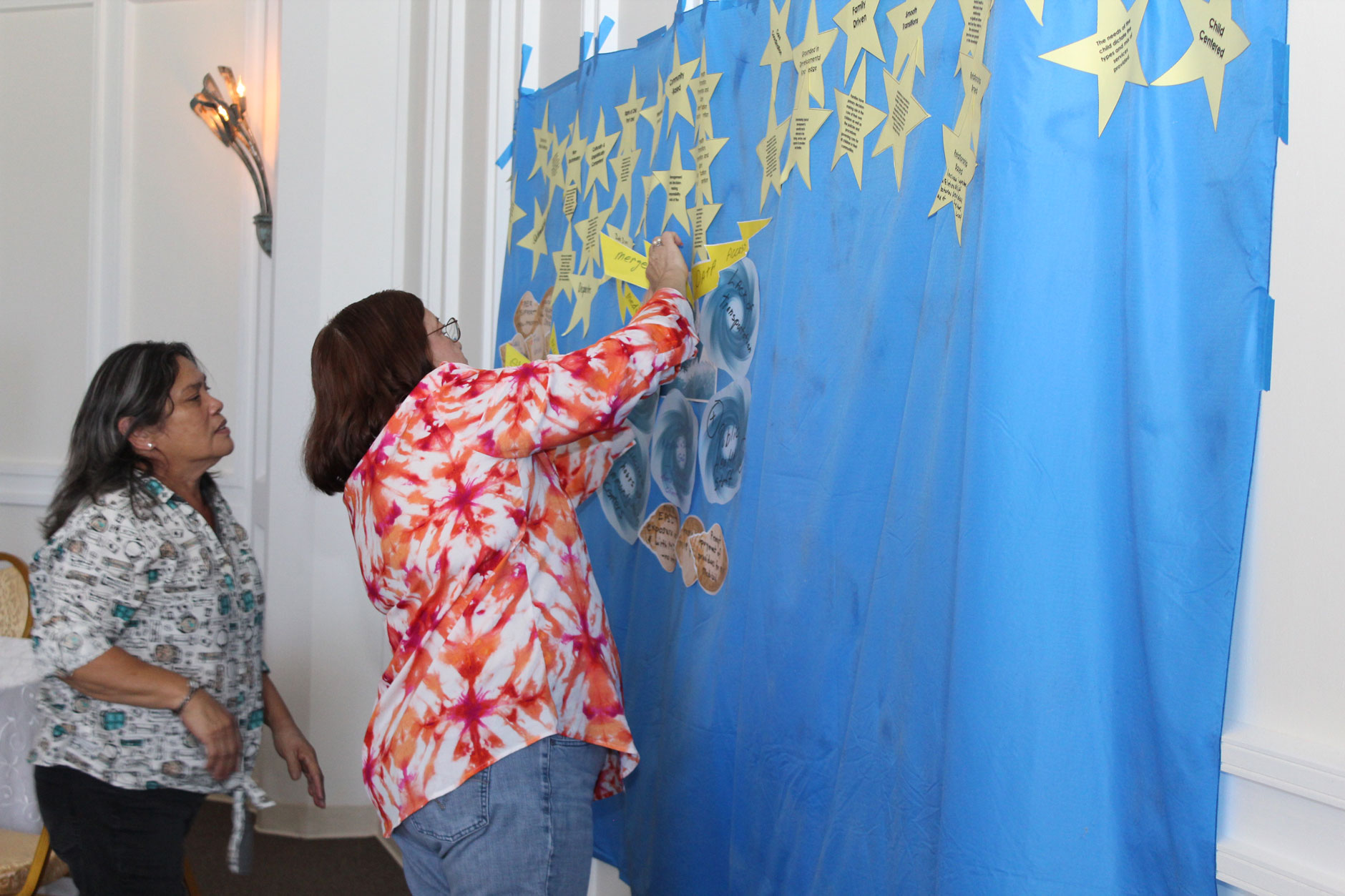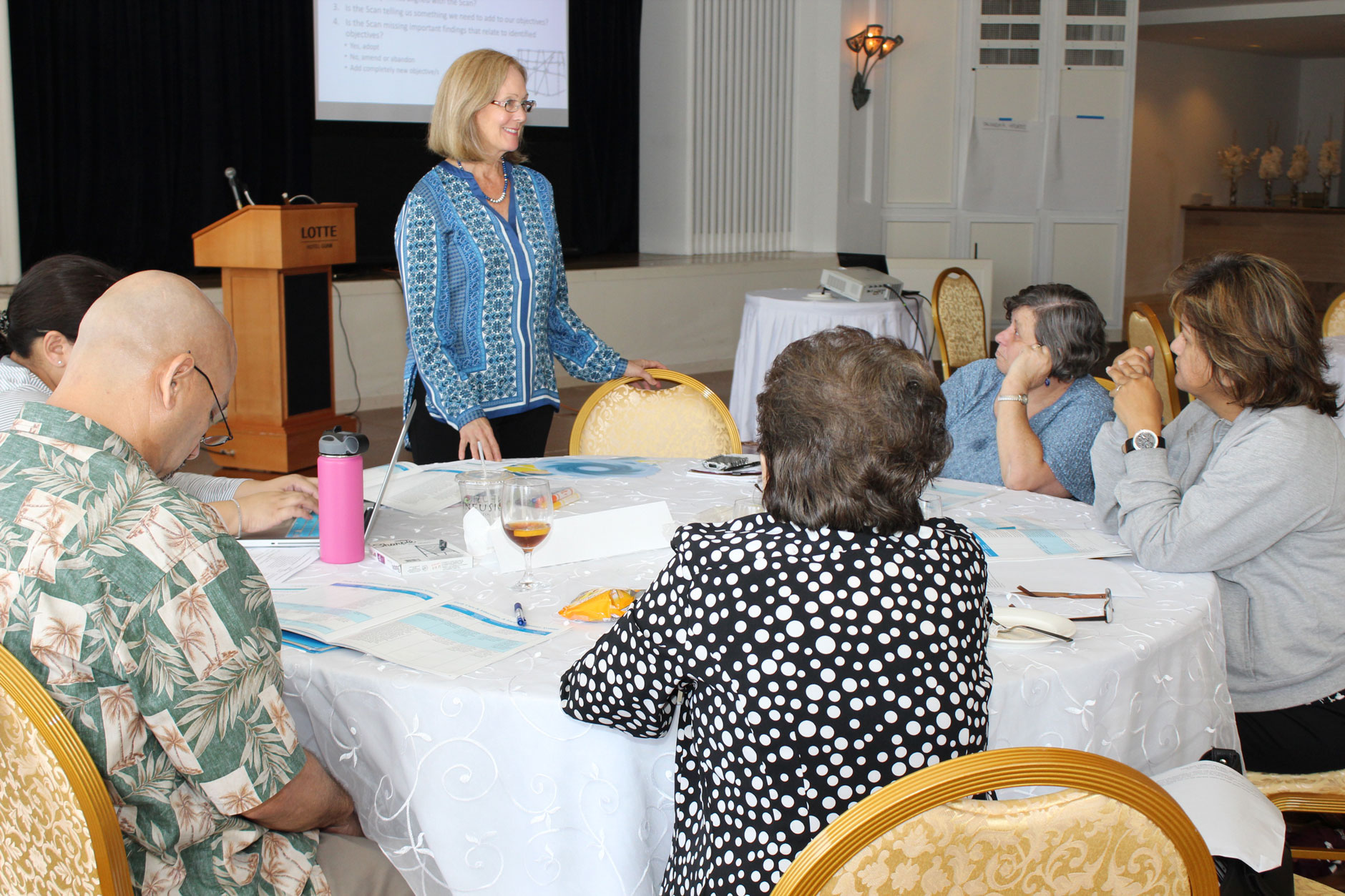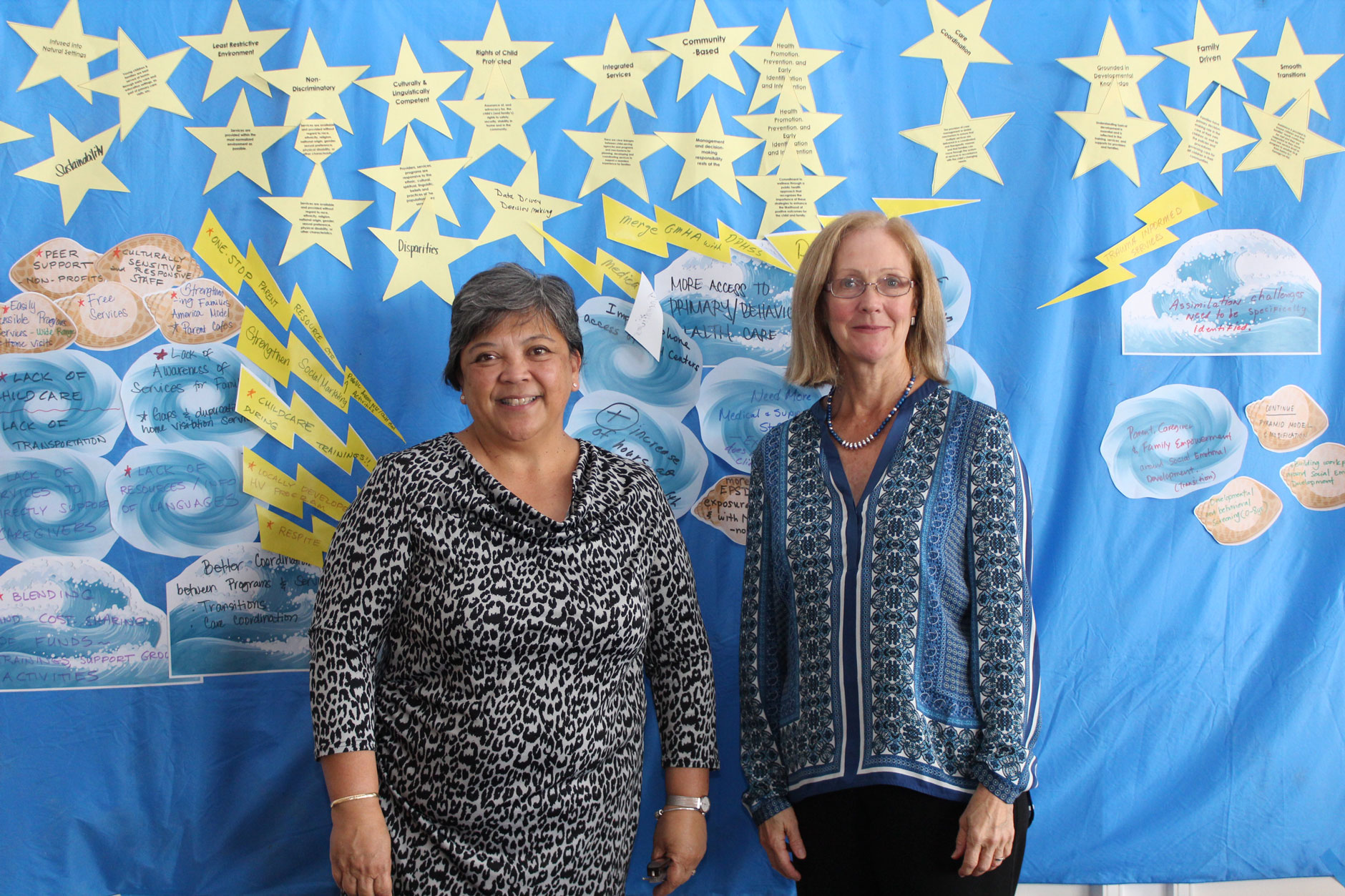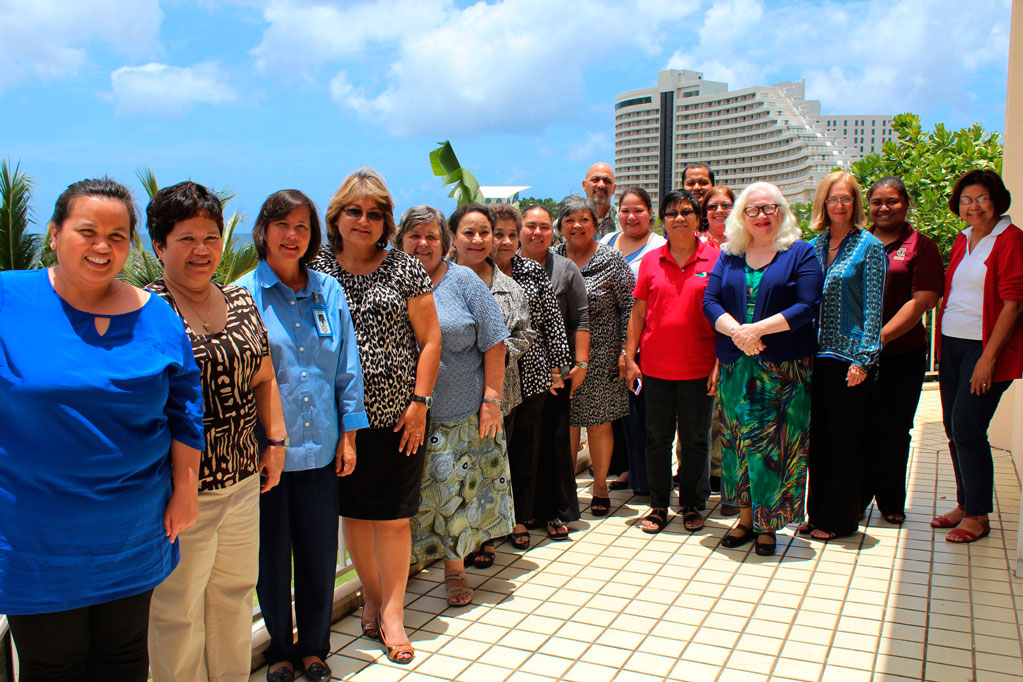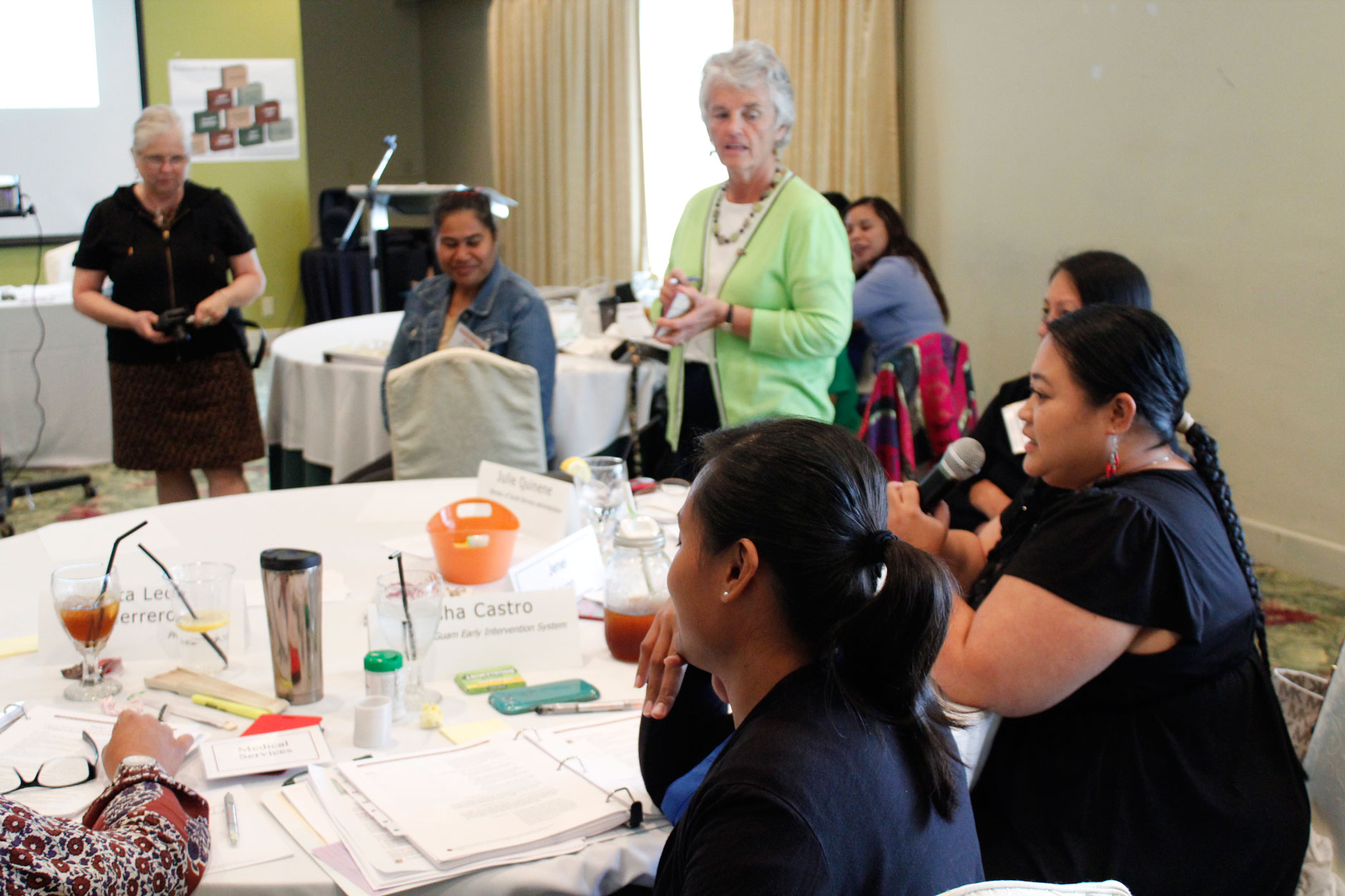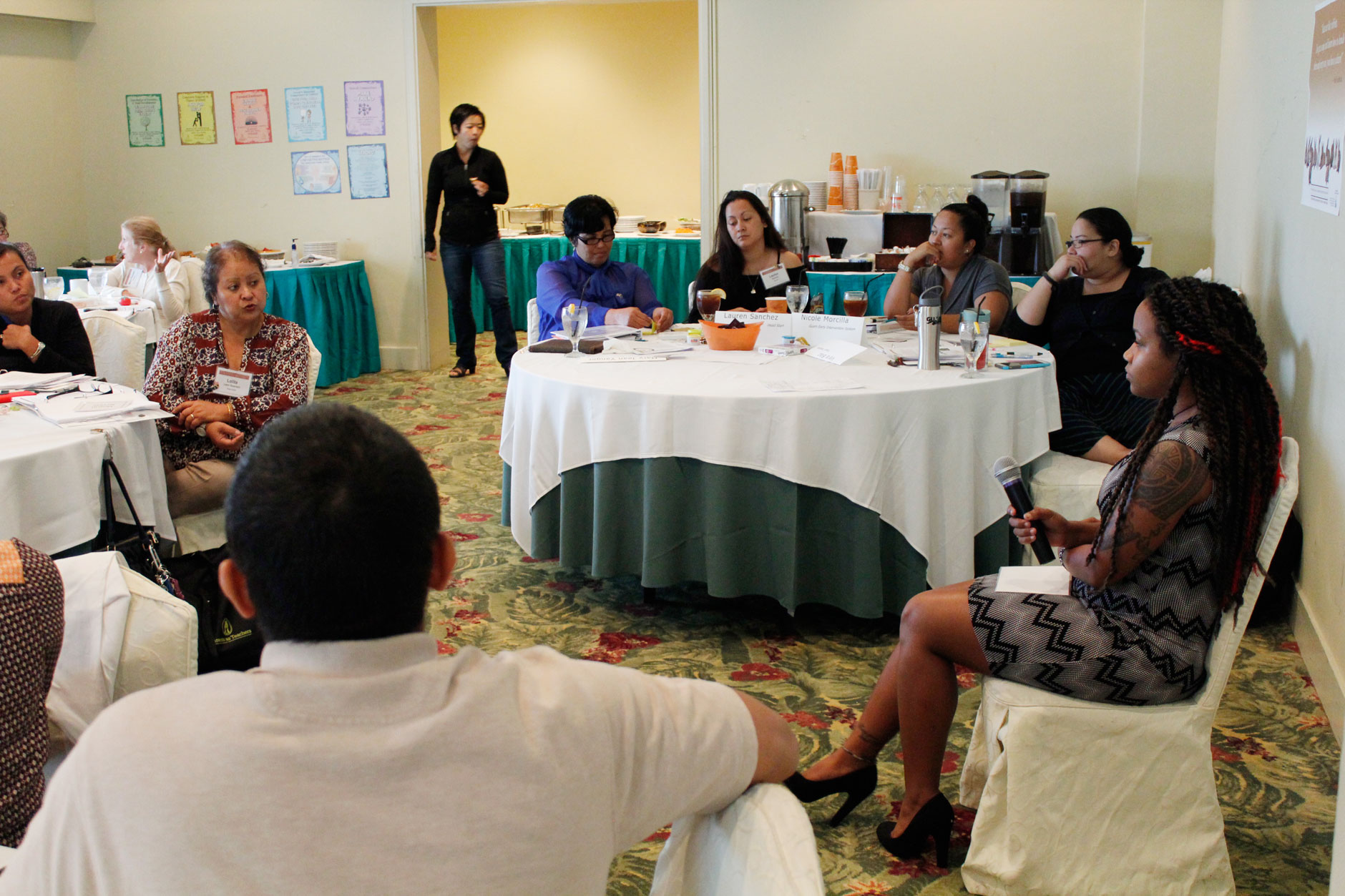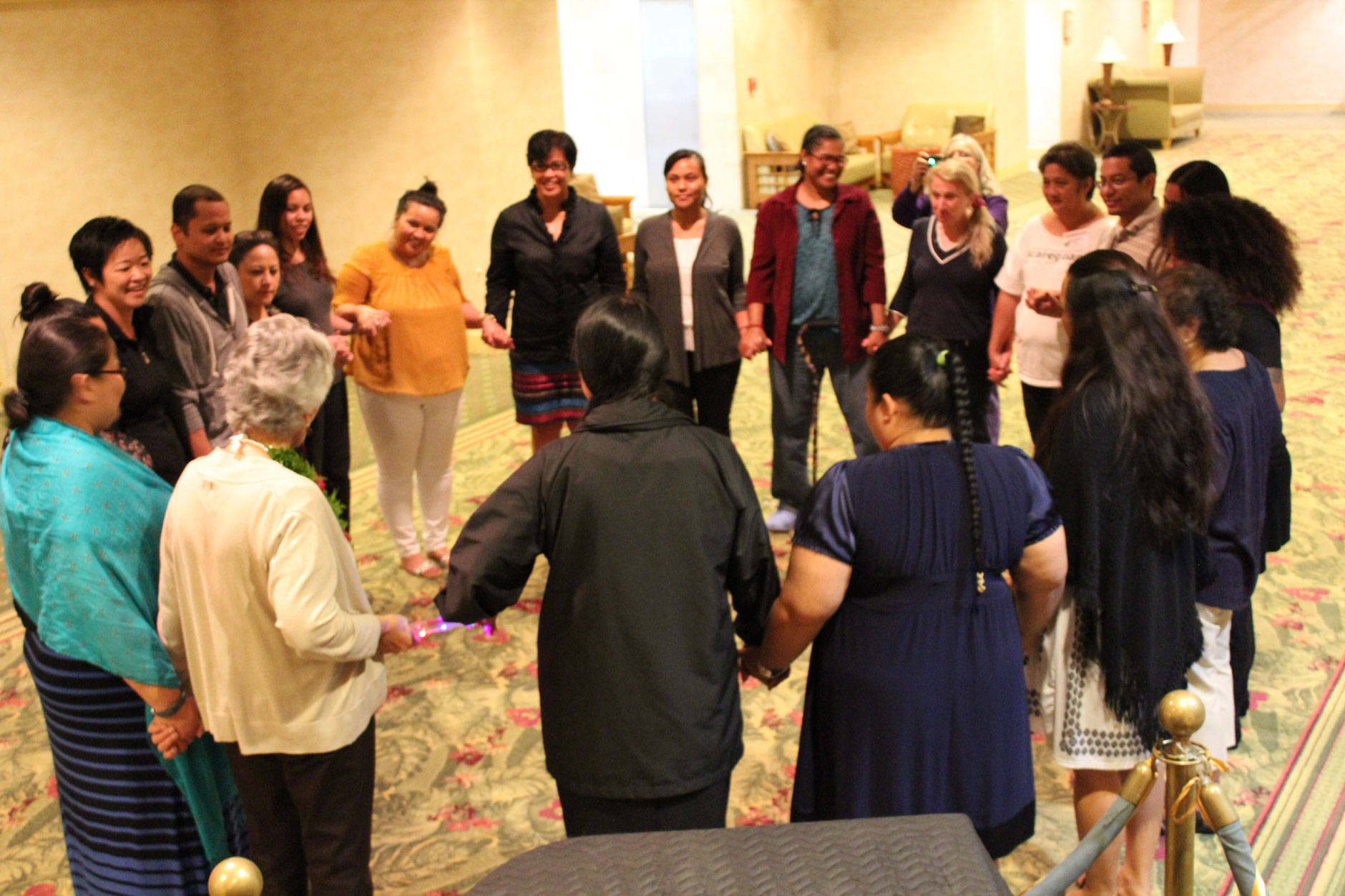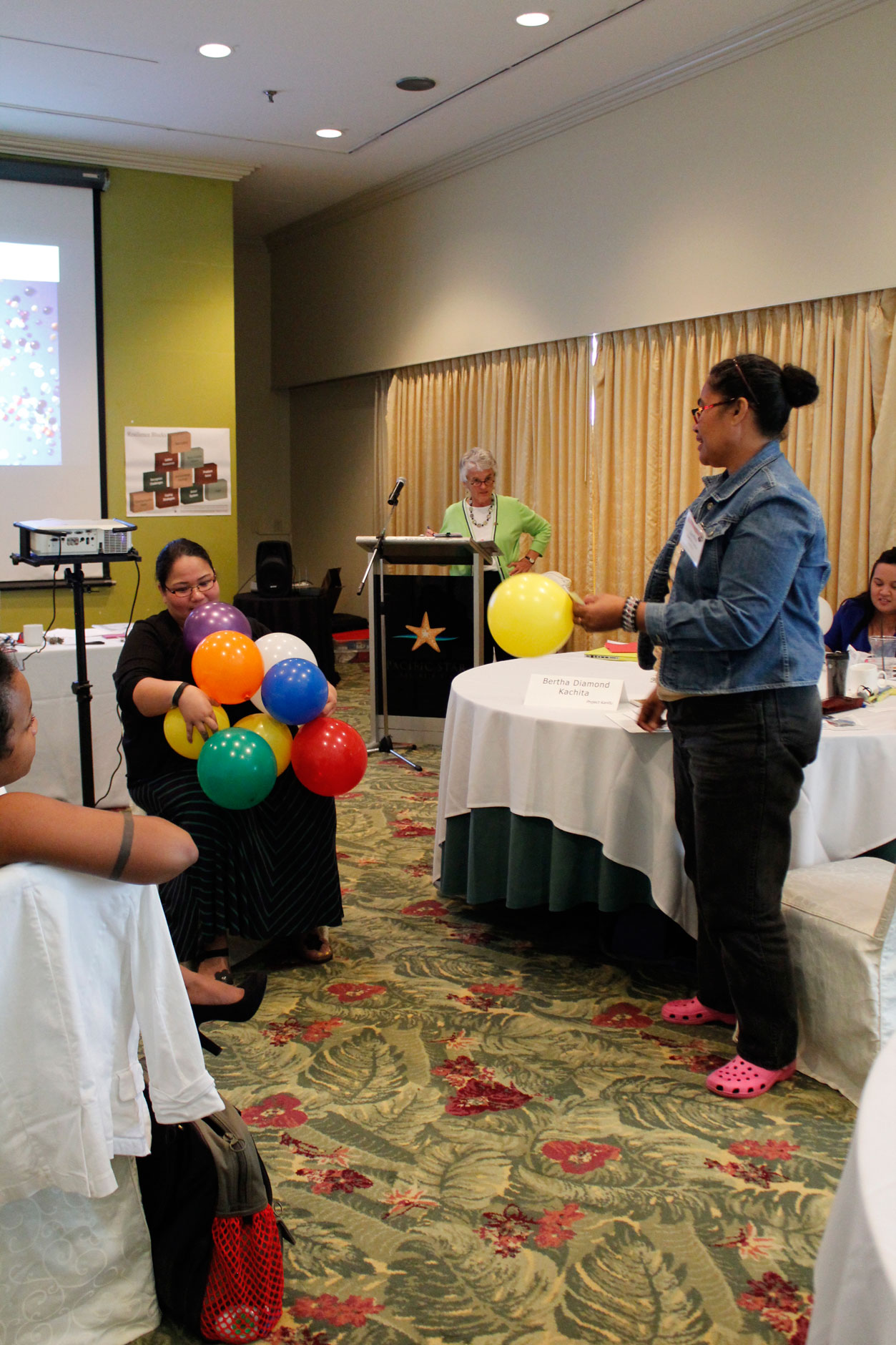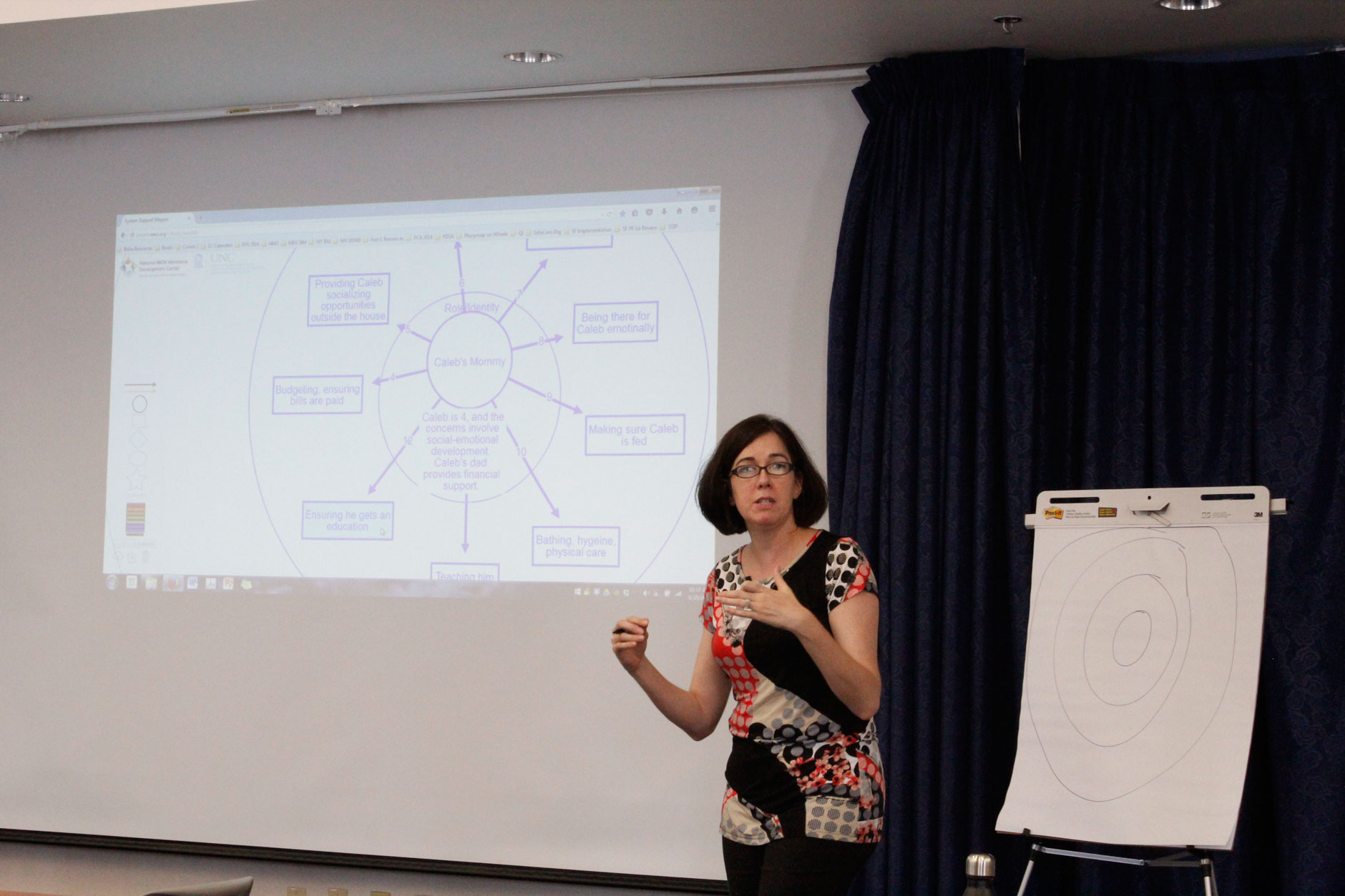
Kristen Hassmiller-Lich, provided technical assistance on how to create a systems map using a web based program. Kristen Hasmiller-Lich was part of a team of consultants from the National Maternal Child Health (MCH) Workforce Development Center that visited Guam to provide training and technical assistance to the Guam Cohort 2 Leadership Team on June 24-26, 2015 at the Multi-purpose room 129, Jesus and Eugenia Leon Guerrero Building, University of Guam.
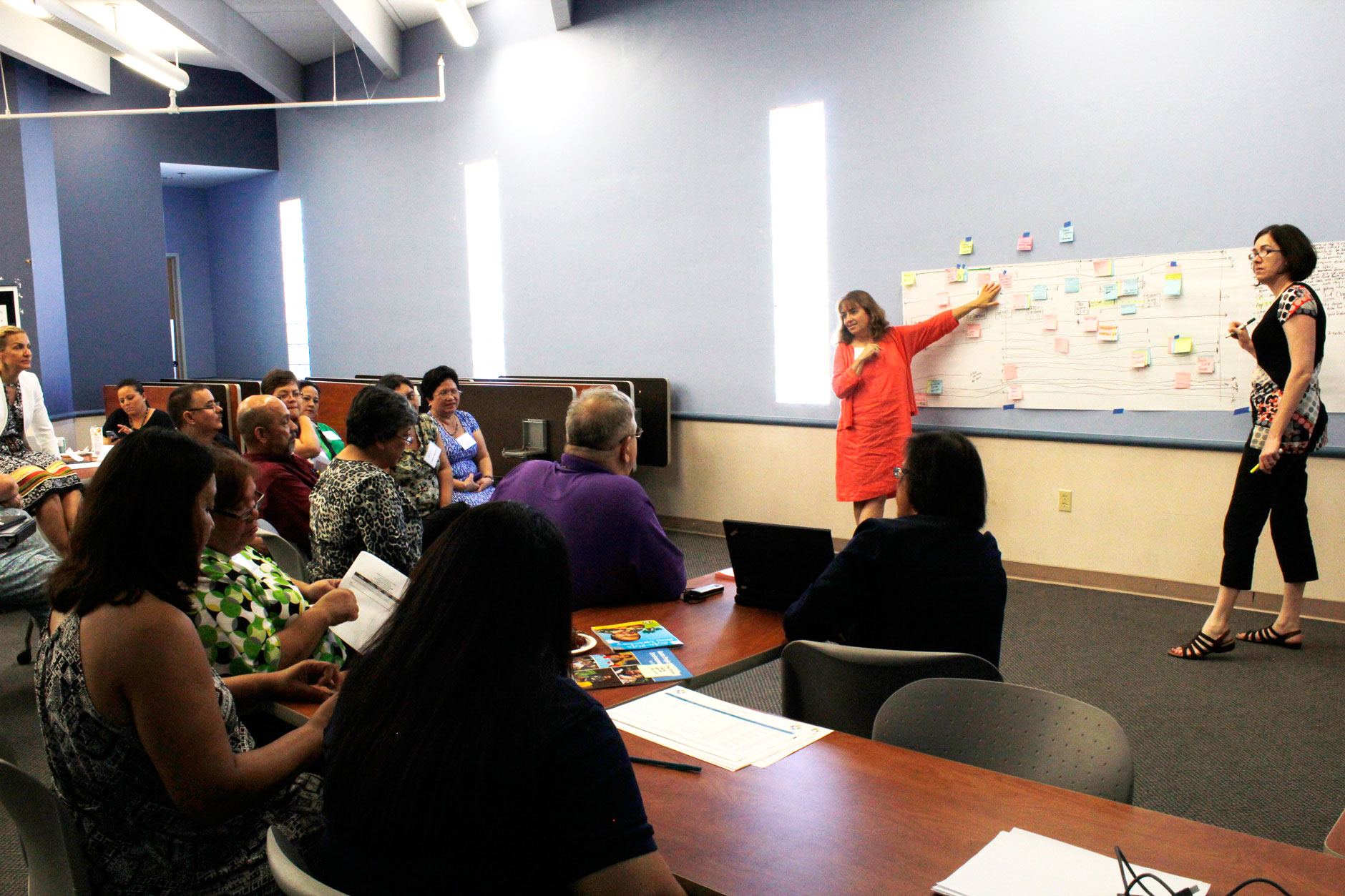
Dorothy Cilenti (standing left) and Kristen Hassmiller-Lich (standing right) facilitated a session on program flow diagramming during the National MCH Workforce Development Center, Guam site-visit, on June 24-26, 2015 at the Multi-purpose room 129, Jesus and Eugenia Leon Guerrero Building, University of Guam.
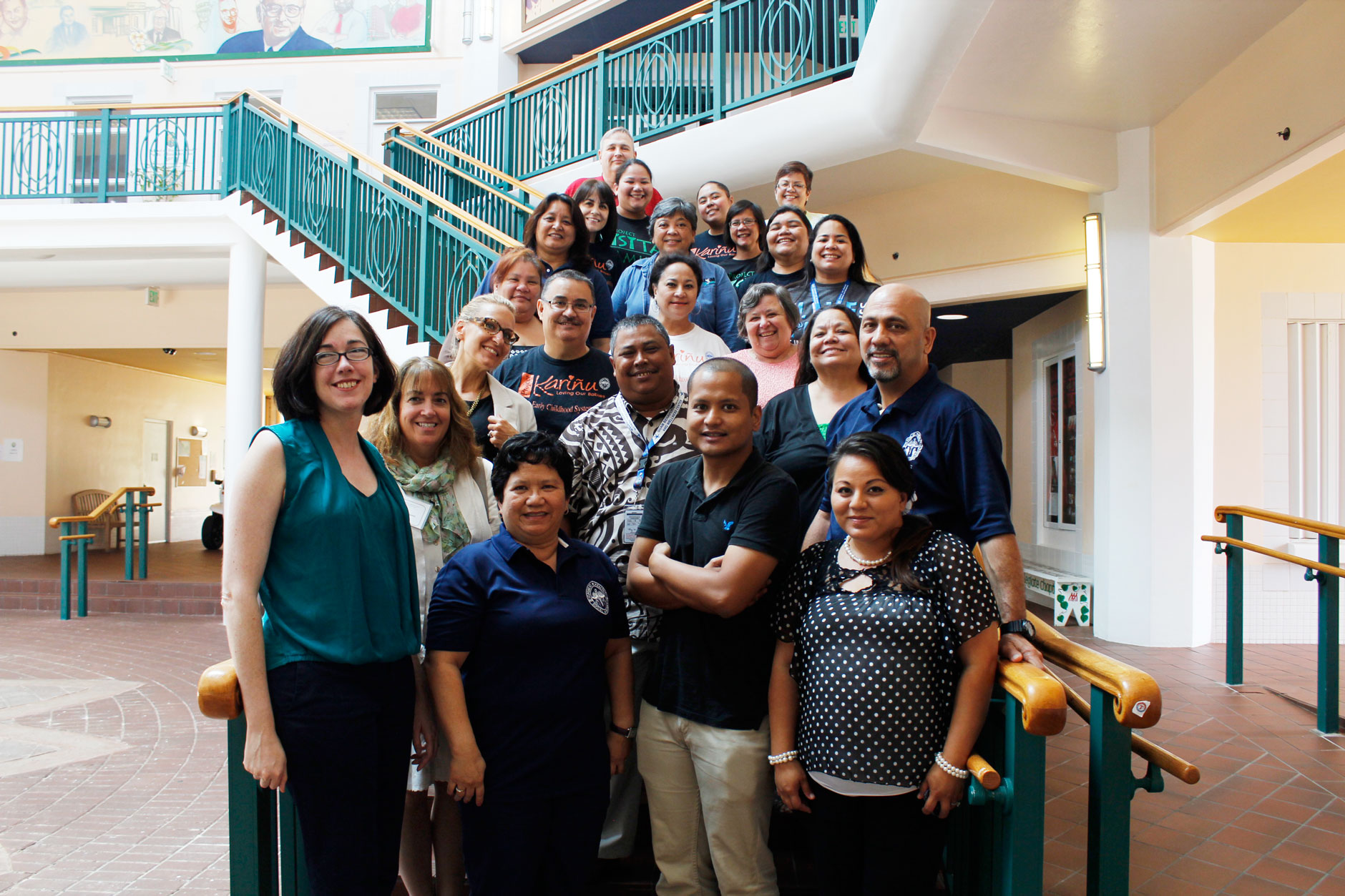
Guam Cohort 2 Leadership Team gathered for a group picture with the National MCH Workforce Development Center Consultants, Kristen Hasmiller-Lich (1st row bottom left), Dorothy Cilenti (2nd row far left), and Sharron Corle (3rd row far left). The Guam Cohort 2 Leadership Team is a team of early childhood agency administrators and representatives and parents that have been receiving technical assistance from the National MCH Workforce Development Center on how to improve early care & education services and early childhood health & human services integration on Guam. Parents were involved with the team along with representatives from the following agencies: Division of Public Health; Maternal Child Health Program; Child Care Development Fund; Bureau Of Social Services Administration; Immunization Program; Early Periodic Screening, Diagnostic, and Treatment Program; Women Infant Children Program; Project Karinu; Project Bisita I Familia; Project Launch; and Project Tinituhon.
National MCH Site-Visit TA
Bureau of Social Services Administration Community Services: Training Department of Public Health & Social Services Early Childhood Guam Launch Project Bisita I Familia Project KariñuEarly Childhood Providers Complete Training on ASQ-3
Community Services: Technical Assistance Early Childhood Project Bisita I Familia Project KariñuGuam EHDI Team and DPHSS Representative meet with Information Systems Consultant
Community Services: Technical Assistance Early Childhood Guam Early Hearing Detection & Intervention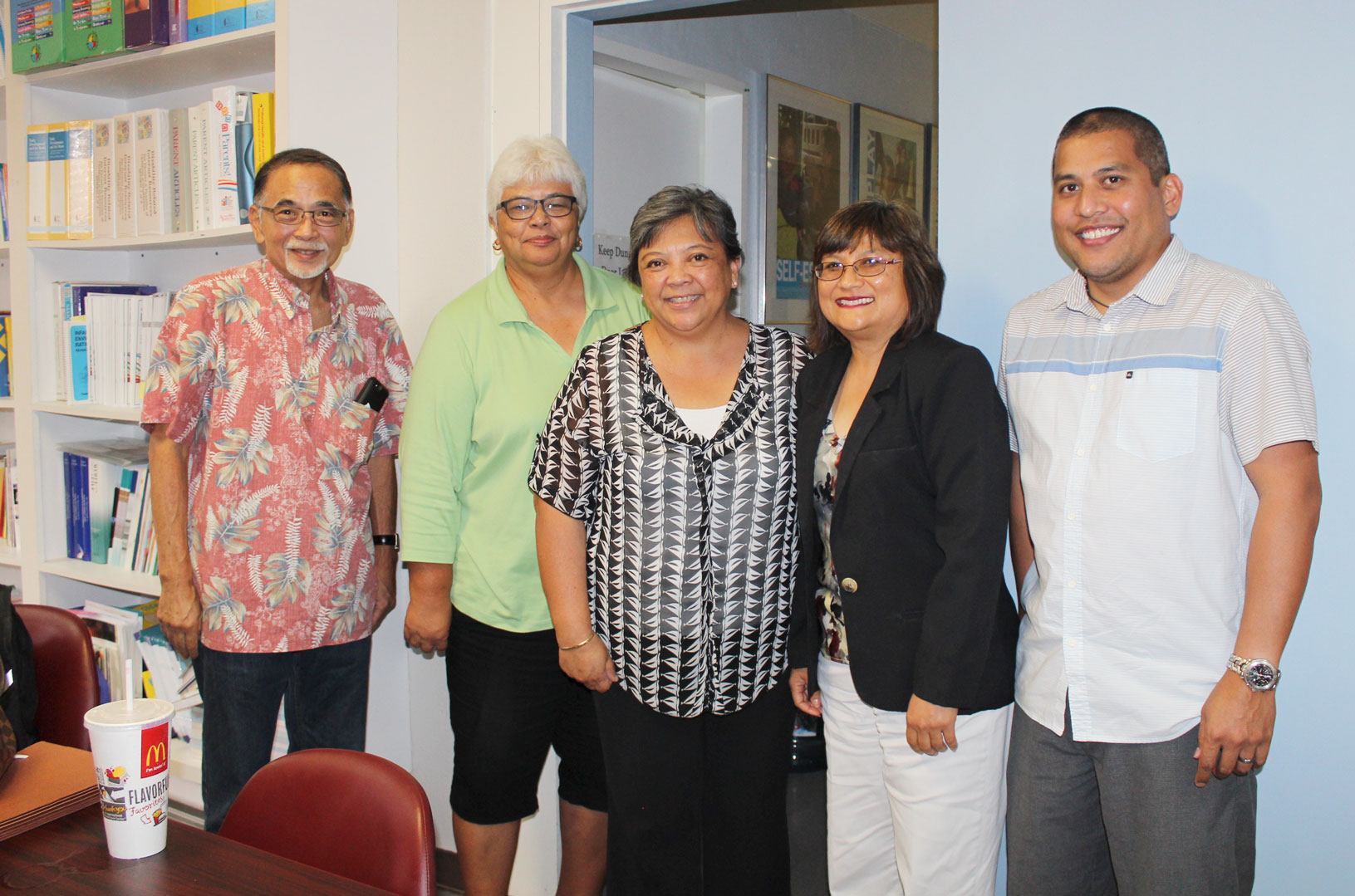
Parents Receive Support from National Team
Community Services: Technical Assistance Early Childhood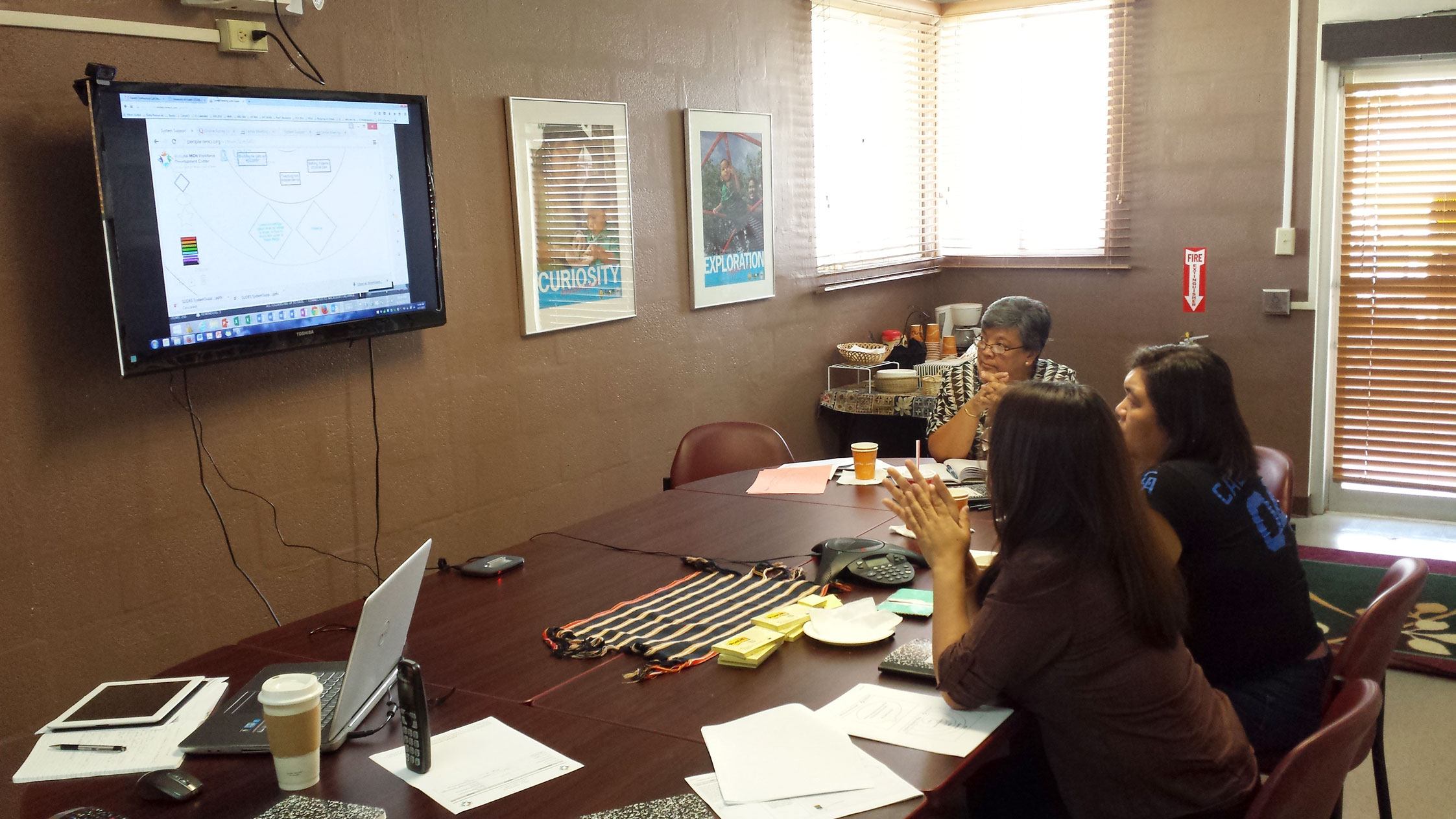
Guam EHDI Advisory Council Meeting
Community Services: Technical Assistance Early Childhood Guam Early Hearing Detection & Intervention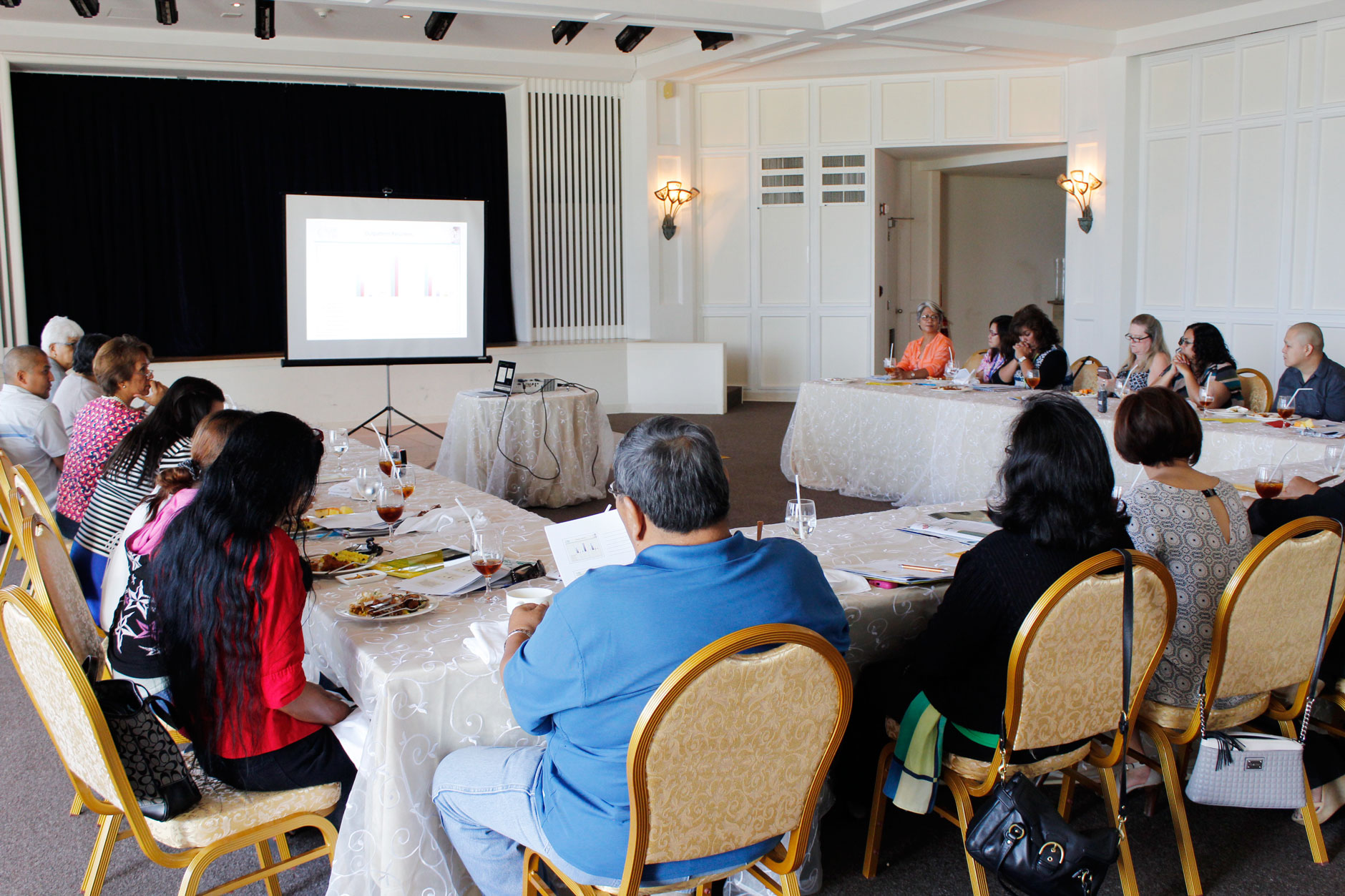
Families Attend Head Start Parent Transition Conference
Community Services: Training Early Childhood UncategorizedEarly Childhood Providers Attend ASQ Training
Department of Public Health & Social Services Early Childhood